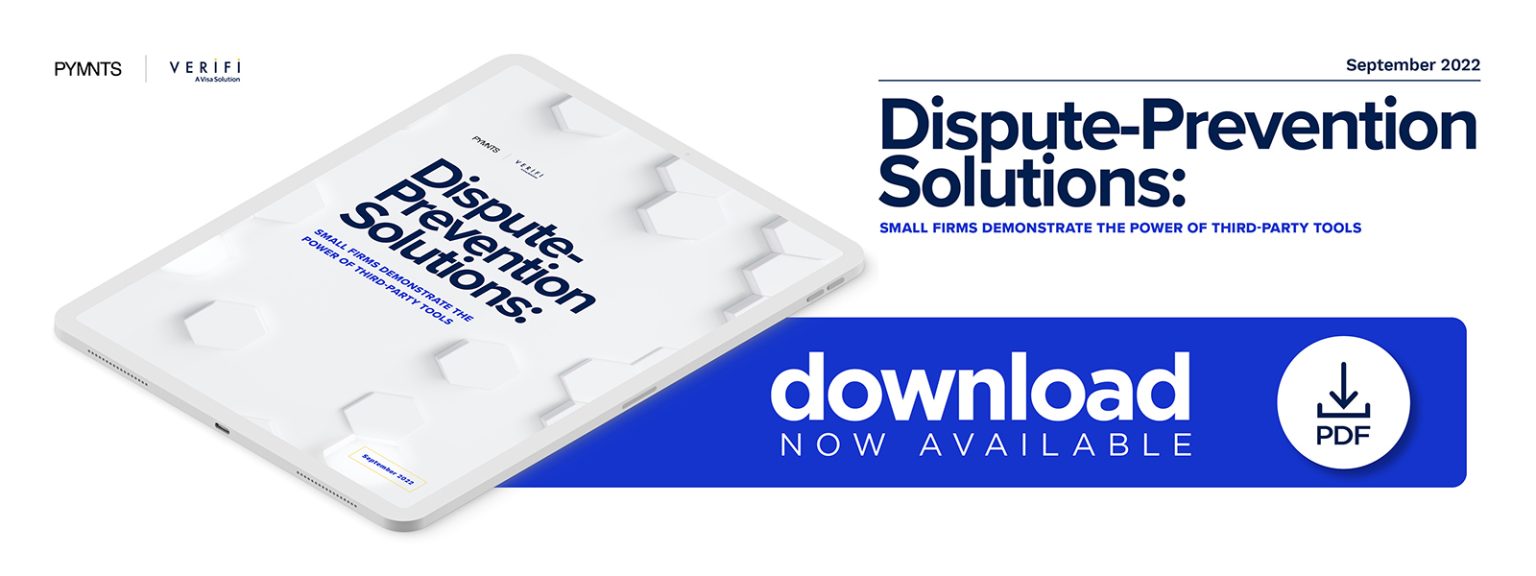44% of Disputed Credit Card Transactions Stem From Consumers

Unhappy — or simply confused — consumers can upend merchants and other enterprises’ top lines when they opt to dispute card transactions. Processing errors can cause revenue hiccups and losses.
Those are among the findings of “Dispute-Prevention Solutions: Small Firms Demonstrate the Power of Third-Party Tools,” a PYMNTS and Verifi collaboration. With the input of more than 300 companies across the retail, entertainment and gaming, travel and leisure, and digital subscription services realms, we found that disputed and disrupted transactions are a real and everyday cost of doing business.
Most of these issues are universal and vary little according to revenue, employee number and industry. But it may come as a surprise to note that smaller firms are better positioned to weather at least some of the storm, as they do not, like their larger brethren, develop technologies in house to handle disputes.
The smaller companies, reliant on outside providers, have relatively tamer impact from those disputes than larger companies. As many as 93% of businesses generating between $20 million and $100 million in annual sales — the smallest category PYMNTS surveyed — versus just 34% of businesses generating $1 billion or more in yearly revenue use third-party tools.
And in a bit of correlation, smaller companies also reported losing a smaller portion of their annual card transaction sales to cardholder disputes — 0.38% of sales for the smallest players compared to 0.51% of sales for businesses generating more than $1 billion in sales.
The urgency to use more effective tools (and perhaps outside providers) shows up in the fact that 44% of disputed/disrupted transactions originate with the consumer, while 36% of those interrupted transactions stem from processing errors.

